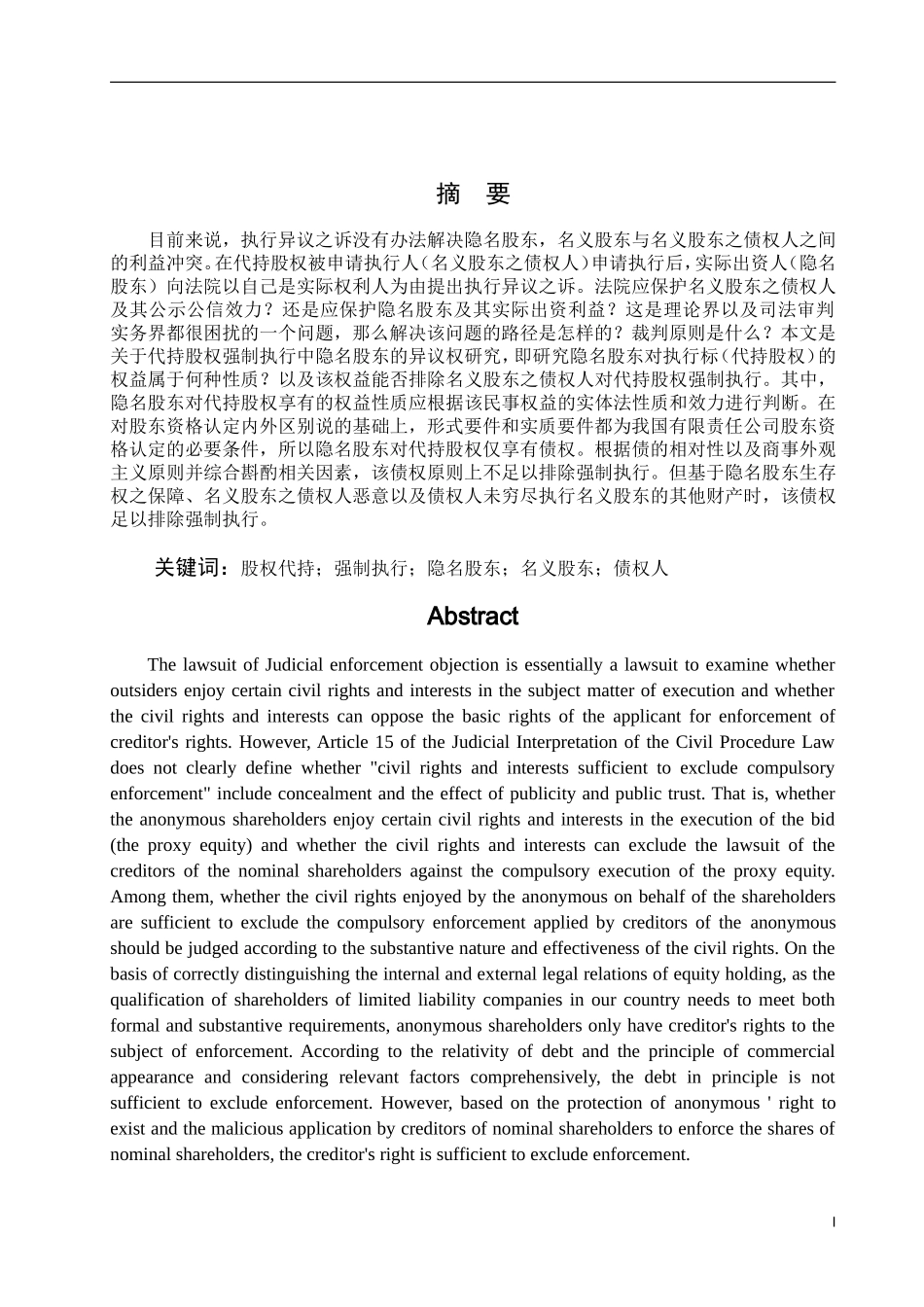I摘 要目前来说,执行异议之诉没有办法解决隐名股东,名义股东与名义股东之债权人之间的利益冲突。在代持股权被申请执行人(名义股东之债权人)申请执行后,实际出资人(隐名股东)向法院以自己是实际权利人为由提出执行异议之诉。法院应保护名义股东之债权人及其公示公信效力?还是应保护隐名股东及其实际出资利益?这是理论界以及司法审判实务界都很困扰的一个问题,那么解决该问题的路径是怎样的?裁判原则是什么?本文是关于代持股权强制执行中隐名股东的异议权研究,即研究隐名股东对执行标(代持股权)的权益属于何种性质?以及该权益能否排除名义股东之债权人对代持股权强制执行。其中,隐名股东对代持股权享有的权益性质应根据该民事权益的实体法性质和效力进行判断。在对股东资格认定内外区别说的基础上,形式要件和实质要件都为我国有限责任公司股东资格认定的必要条件,所以隐名股东对代持股权仅享有债权。根据债的相对性以及商事外观主义原则并综合斟酌相关因素,该债权原则上不足以排除强制执行。但基于隐名股东生存权之保障、名义股东之债权人恶意以及债权人未穷尽执行名义股东的其他财产时,该债权足以排除强制执行。关键词:股权代持;强制执行;隐名股东;名义股东;债权人AbstractThe lawsuit of Judicial enforcement objection is essentially a lawsuit to examine whether outsiders enjoy certain civil rights and interests in the subject matter of execution and whether the civil rights and interests can oppose the basic rights of the applicant for enforcement of creditor's rights. However, Article 15 of the Judicial Interpretation of the Civil Procedure Law does not clearly define whether "civil rights and interests sufficient to exclude compulsory enforcement" include concealment and the effect of publicity and public trust. That is, whether the anonymous shareholders enjoy certain civil rights and interests in the execution of the bid (the proxy equity) and whether the civil rights and interests can exclude the lawsuit of the creditors of the nominal shareholders against the compulsory execution of the proxy equi...


